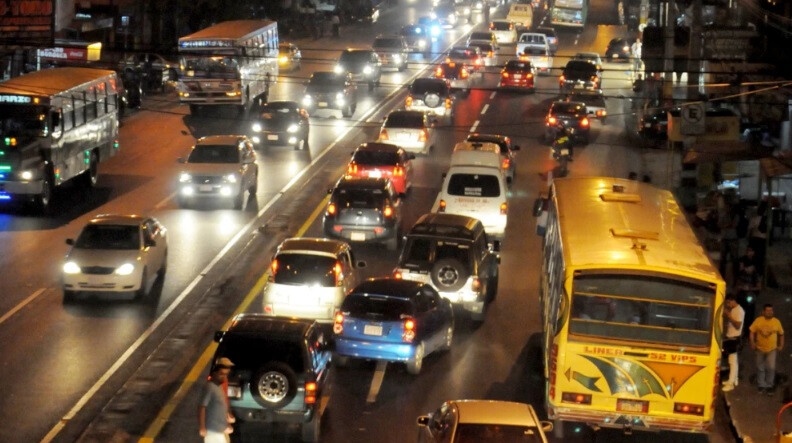
An analysis has revealed that 78% of daily traffic volume in the Greater Asunción area, the capital of Paraguay, is due to private cars and motorcycles, causing severe traffic congestion. According to a recent World Bank (WB) report, the average number of daily trips in the Greater Asunción area reaches approximately 8 million, but the public transportation usage rate is only 7%.
The report, titled "Improving Urban Mobility Using Big Data: The Paraguay Experience," jointly prepared by World Bank economists and analysts, presented specific data on the traffic situation in the Asunción metropolitan area and pointed out serious problems. The report diagnosed that "the urban transport infrastructure is under severe pressure" as nearly 50% of the total registered vehicles in Paraguay are concentrated in the Greater Asunción area, where 34% of the country's total population resides.
According to the report, approximately 8 million trips occur daily in the Greater Asunción area on weekdays, which is "slightly higher per capita than cities like Bogotá and similar to Buenos Aires." However, a breakdown of the transportation mode share reveals a significant imbalance. The World Bank described it as "striking" in the report, noting that public transport usage accounts for less than 7% of all trips, and non-motorized transport (walking or cycling) usage is only 15%, while an "overwhelming" 78% use private cars or motorcycles.
This high rate of private car and motorcycle use is identified as a major cause of road network overload. The report criticized that "the overload on the road network, which was not designed to handle the current rate of vehicle growth, causes commuters, especially public transport users, to spend a significant amount of time traveling each week."
A more serious issue is that despite half of the trips being short distances of 1 to 5 km, more than 16% of public transport users spend over an hour commuting. This reduces the attractiveness of public transport, leading to a vicious cycle that further worsens road congestion.
The World Bank also pointed out that the high rate of private car use contributes to increased air pollution in addition to traffic congestion and long travel times. The report added, "Despite having a clean hydropower-based electricity system, Asunción is one of the few capitals in Latin America without a rapid mass transit system," and that "alternatives such as electric bus corridors are currently being actively considered."
The report also presented the results of an analysis of the traffic situation on Eusebio Ayala Avenue, Asunción's main arterial road. While one-sixth of Asunción's total daily traffic passes through this road, the World Bank pointed out that "there is room for improvement in terms of service quality and efficiency due to the duplication of numerous routes and a lack of coordination between them."
In this situation, the World Bank supported the Vice Ministry of Transportation of Paraguay in introducing big data-based traffic analysis tools. These include the General Transit Feed Specification (GTFS) and Mobile Positioning Data (MPD), which allow for a more detailed picture of urban mobility. According to the report, the 2021 Asunción Metropolitan Area Mobility Survey captured only 39% of the trips identified through mobile positioning data, highlighting the importance of big data-based analysis.
Asunción's severe traffic congestion problem requires urgent solutions as it can lead not only to inconvenience for citizens but also to economic losses and the aggravation of environmental problems. The government's active investment and policy formulation are crucial to increase the low public transport usage rate and build an efficient transportation system. It is necessary to actively utilize the big data-based analysis tools presented by the World Bank to deeply diagnose urban traffic problems and to create a sustainable urban transportation environment through efforts to build eco-friendly public transportation systems such as the introduction of electric buses. Furthermore, policies to improve the efficiency of public transport routes and strengthen the connectivity between various modes of transport also remain important tasks.
[Copyright (c) Global Economic Times. All Rights Reserved.]






























